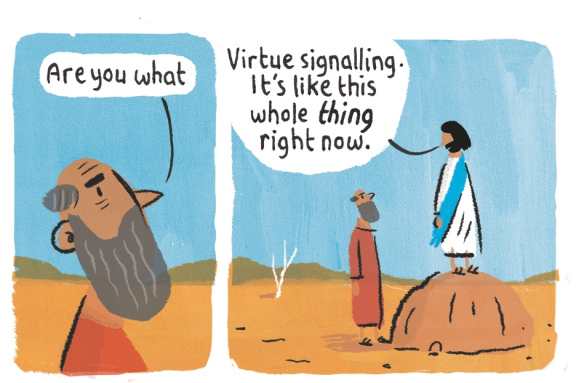Obviously COVID was going to be very interesting for white-collar knowledge work. A couple of weeks back, I argued that it created a “Fight Club” situation in white-collar work, where executives are basically making employees brawl for resources and available jobs relative to layoffs. That might be a bit dramatic, and sometimes I think I don’t fully understand the office-to-home transition because I’ve been mostly working from home since November 2015, but … you know academics are loving COVID for the ability to study all the shifts in perception and reality around vocation. Many books will come from this; perhaps even more than the Trump Presidency spawned.
The two sides of the argument
Side 1 is that everything is worse, especially for women, and people are working more than ever. Here’s something on the workday being 48 minutes longer, and longer than that for women. This argument holds that “The New Normal” is not here to stay. It might take until July 2021 or later, but eventually we will all return to commutes and office work and random discussions that begin with “Oh, is that chicken? Did you bring chicken today?”
Side 2 is that things are fine, companies adapted well to WFH where they could, and, as The Wall Street Journal noted in August, “remote work is here to stay.” This side talks about in-office bullshit, talks about the “warm body” theory of office management (where you can be grabbed for any project just because you’re sitting in proximity to someone who needs work done), and the like.
Now, if you believe the goal of work is productivity — which is actually hit or miss, as the goal of work is often simply control — there’s some new research from London School of Business on the productivity of work-from-home knowledge workers. Let me give you the “nut graf” stuff up front:
- Lockdown helps us focus on the work that really matters. We are spending 12% less time drawn into large meetings and 9% more time interacting with customers and external partners.
- Lockdown helps us take responsibility for our own schedules. We do 50% more activities through personal choice — because we see them as important — and half as many because someone else asked us to.
- During lockdown, we view our work as more worthwhile. We rate the things we do as valuable to our employer and to ourselves. The number of tasks rated as tiresome drops from 27% to 12%, and the number we could readily offload to others drops from 41% to 27%.
Here’s a corresponding visual:

The cool thing about that chart is the increase in “Found Time — Was Important.” Maybe we are finally finding time for more purposeful work in all this mess around us?
Maybe, and hopefully. The flip side of that argument is that a lot of people have no idea what’s important professionally (95% of employees in enterprise can’t name the strategy of where they work), so maybe they just think they’re doing more purposeful stuff? Or maybe they’re seeing family more, and that feels beautiful and purposeful (if often challenging), so they just say they’re finding time for important things?
There are a bunch of different ways to interpret all of it, sure.
So what about virtue-signaling?
First off, a lot of times people think virtue-signaling as a concept can only apply to politics and left vs. right arguments. Nope. It applies very much to work things.
Early on with COVID, I didn’t know if it would change much in terms of friendship or work style. If you already suck as a friend, how is being isolated from others going to make you better? If you already suck as an employee, it’s more stuff to hide behind (“… during a pandemic?”). That’s where the virtue-signaling comes in.
Let’s say you work at an office that has made it a goal (ha!) to have less video meetings, because they’re draining. We know from research that a lot of knowledge workers spend most of their week in meetings and answering emails. I’ve had a lot of jobs where I’m not important enough to get invited to a lot of meetings. If your calendar lacks meetings, you work maybe 2.5-4 hours/day in white-collar knowledge work. Meetings consume so much time for so many (“racing to my next call”).
In the absence of those meetings, which some companies are trying to be better about WFH-style, people don’t have as much to do, but then there are life complications around kids, parents, education, groceries, and whatnot. So that stuff — real stuff — is taking up their time, but they still virtue-signal about how much work they have, because being busy and important is as much currency as money is.
So, I do believe the workday is longer, but I don’t think that’s all work, no. I think it’s life + work — that’s another article entirely, where that line is now — and I think we’re virtue-bombing about how intense work is mostly in the name of relevance. If we’re super busy and spending 48 minutes/day or more extra on work, then we can’t be piped out if 2021 revenue isn’t up to snuff, right? We can avoid a layoff wave.
That’s how it feels — like work has become less intense for people, but they’re claiming it’s more intense. You get that sense.
